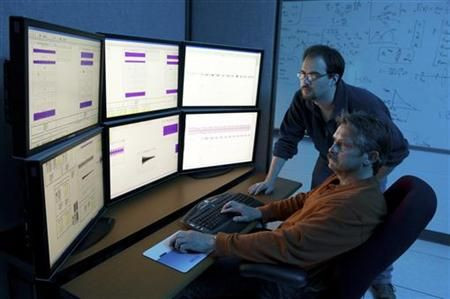World Conference Seeks Cooperation on Cyberspace Threats

Ministers, tech executives and Internet activists from around the world gather in London Tuesday to discuss how to tackle security threats and crime on the Internet without stifling economic opportunities or freedom of speech.
The London Conference on Cyberspace will look at ways to increase international cooperation in addressing issues raised by the rapid expansion of the Internet, as fast-growing economies are increasingly agitating for governments to have a bigger say in its regulation.
How to ensure we can all reap the benefits of a safe and secure cyberspace for generations to come is one of the greatest challenges we face, British Foreign Secretary William Hague, who is chairing the meeting, said.
This needs to be a collective endeavor, involving all those who have a stake in cyberspace.
Representatives from China, Russia and India are expected at the conference as well as tech industry figures such as Jimmy Wales, founder of Wikipedia, and Joanna Shields, a senior executive of Facebook. U.S. Secretary of State Hillary Clinton canceled her trip because of her mother's ill health.
No immediate agreement is expected to emerge from the two-day conference, but British officials hope it will set an agenda for future discussions.
A closed session of the conference will deal with the aspect of the Internet's rise that has seized most attention -- threats to international security.
The last year has seen a dramatic rise in reported cyber attacks often linked to governments, from apparent attempts at data theft at the International Monetary Fund and elsewhere, often blamed on China, to the Stuxnet computer worm attack on Iran's nuclear program linked to Israel and the United States.
CYBER ATTACKS
On the eve of the conference, the head of Britain's communications spy agency said British government and industry computer systems were facing a disturbing number of cyber attacks, including a serious assault on the Foreign Office's network.
While Western states worry about rampant intellectual property theft and hacking, authoritarian governments such as China and Russia are alarmed at the role the Internet and social media played in the protests that have swept the Arab world this year.
Fast-growing emerging economies have been seeking more say in how the online realm is policed, worrying campaigners for a loosely regulated Internet who see a risk to web freedom.
In September, China, Russia, Tajikistan and Uzbekistan proposed to the United Nations a global code of conduct including the principle that policy authority for Internet-related public issues is the sovereign right of states.
While international security and freedom of speech are hugely complex issues, an area where there could be more prospect of international agreement soon could be cooperation to tackle conventional crime and child pornography.
Experts said the broad agenda of the London conference carried the risk it would be thin in achievement.
At best you're going to see some milk and toast statements that are going to satisfy everybody and satisfy nobody. The big question is: Who will govern cyberspace, who will be responsible for making the rules? said Rafal Rohozinski, chief executive of Canadian security consultancy the SecDev Group.
But John Bassett, a former senior official at Britain's GCHQ signals intelligence agency and now a senior fellow at London's Royal United Services Institute thinktank, said a meeting of minds was much more important than diplomatic agreements at this stage.
If we find enough ground to start a dialogue between governments and other players, that would be an excellent result, he said.
(Additional reporting by Georgina Prodhan, Peter Apps, Michael Holden)
© Copyright Thomson Reuters 2024. All rights reserved.





















